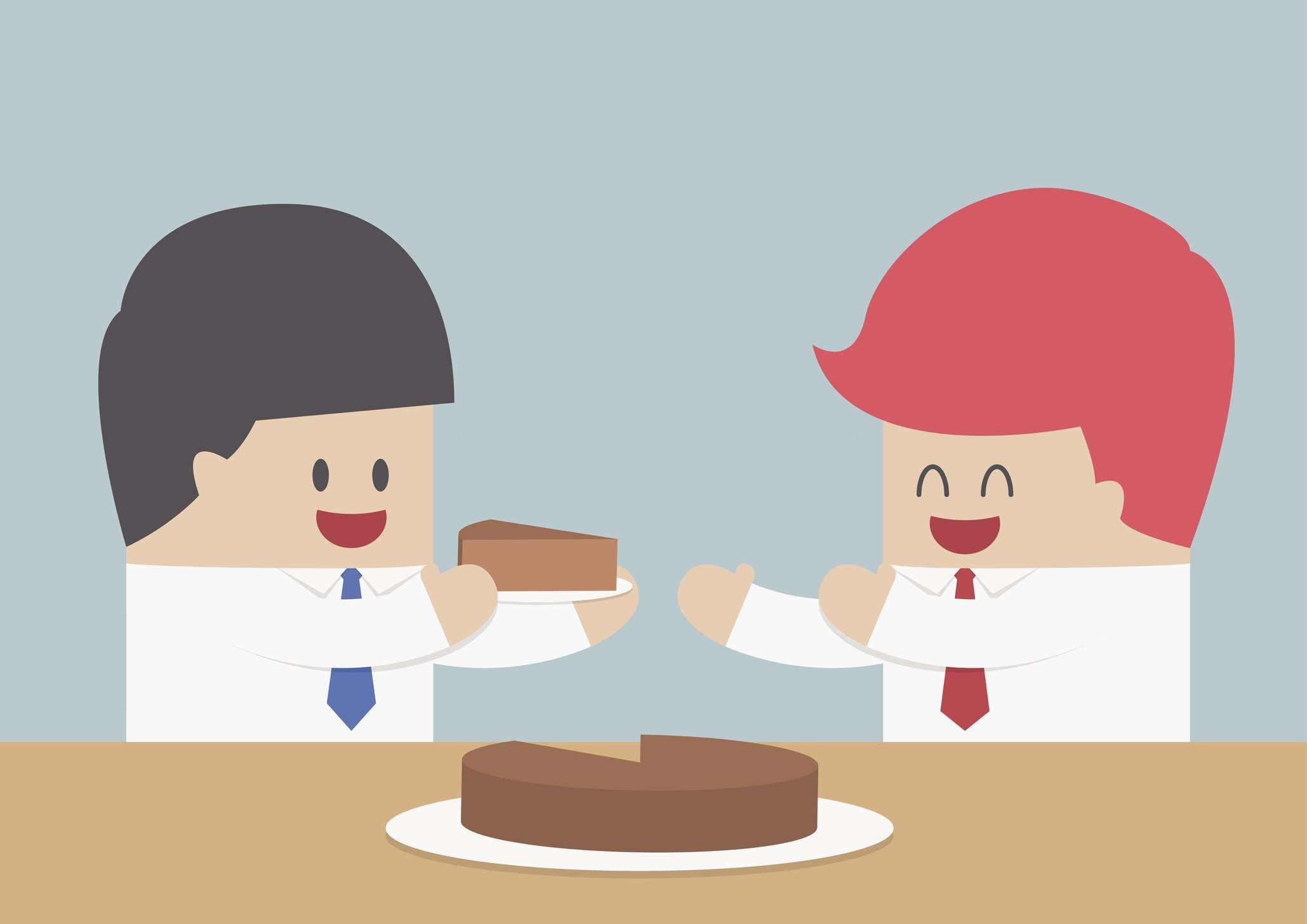You’re in a packed food court, searching for somewhere to sit. Just as you spot a communal table with two free spaces, one much bigger and more comfortable-looking than the other, you realise there’s a person standing beside you with a tray and they are looking for somewhere to sit, too. What do you do? Rush to take the better seat – but appear selfish? Or let them have it, so seem generous – but eat your lunch in cramped discomfort?
A new paper in the Journal of Personality and Social Psychology suggests that you should do neither. Instead, you should say something like, “Oh, go ahead – you choose a seat”, and the odds are that she or he will not only leave the better seat for you, but also think that you’re generous.
Psychologists have generally viewed this kind of scenario as either/or – you can either be worse off materially but see your reputation enhanced, or vice versa. But it doesn’t have to be this way, according the results of eight studies involving imaginary and real-world settings, by Michael Kardas, Alex Shaw and Eugene Caruso at the University of Chicago.
Using a group of 300 online volunteers, they first explored how often people abdicate decisions about distributing two items of unequal value (like a “premium” granola bar and a “low-quality” version) between themselves and a friend. Nearly 70 per cent said they’d choose to abdicate the decision, mostly because they wanted to be seen as generous. In a real-world version of this study, which was conducted in a local park on pairs of people who knew each other, a roughly similar proportion – about two-thirds of the participants – chose to abdicate the decision, and when they did, the other person gave away the more valuable item more often than they kept it for themselves.
A further online study, of 310 people, found that when the participants were informed, in imaginary scenarios, that their friend had abdicated a sharing decision to them, they were much more likely to give away the higher-value object than to keep it, in comparison to a scenario in which they simply had to make the decision about who got what. The researchers write that this is consistent with the idea that abdication is viewed as an act of generosity, which then prompts generosity in return. (Further studies reported in the paper provide additional evidence for this.)
The abdication effect wasn’t only observed between friends. Participants were more likely to be selfish, and keep the high-value option, when they were simply told to decide what they or a stranger would get. But when they were told that the stranger had first abdicated the decision to them, they were again much more likely to give away the high-value option than to keep it. This held in both imaginary situations and in a real world-scenario involving gift cards of different amounts.
The majority of the data reported in this paper came out of imagined rather than actual scenarios, and whether all the findings would replicate in the real world isn’t yet clear. But the effect sizes in terms of the percentages of people opting to abdicate, and opting to give away the more valuable item when informed that the other person had abdicated, were similar in both types of study, the researchers point out.
“In sum,” they write, “abdication seems to be beneficial in more ways than one: abdicators are not only perceived to be generous, but they also tend to receive the larger slice of the pie.” Or, as they also put it, “abdication provides a unique opportunity for people to give up their cake and eat it too.”
—How to give away your cake and eat it too: Relinquishing control prompts reciprocal generosity
Emma Young (@EmmaELYoung) is Staff Writer at BPS Research Digest

Speezy183 on September 27th, 2018 at 12:32 UTC »
So what you're saying is, manipulate the other person into thinking you're nicer than you actually are to trick them into giving you a better result.
dog_fart_tacos on September 27th, 2018 at 12:24 UTC »
Before I knew this, I was generous. Now that I know it, I am a manipulative, selfish person. The joy of knowledge.
BitchFromTheNews on September 27th, 2018 at 12:10 UTC »
Maybe this works on strangers... when I do this with chores and my husband he always picks the easier one.